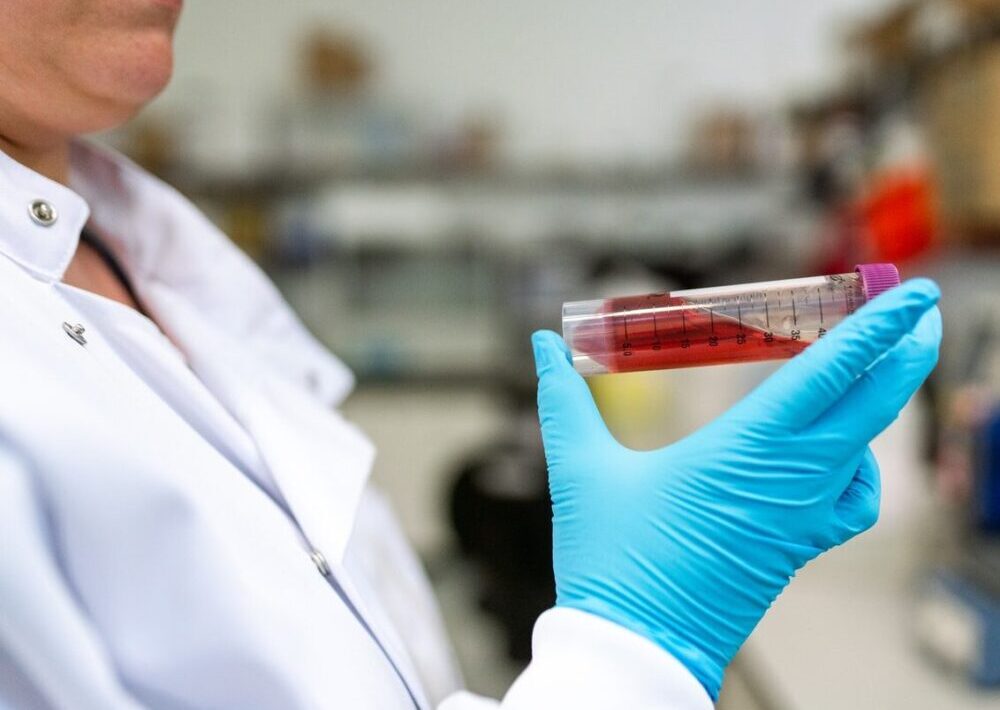Old age and Alzheimer’s are a combination that has become very standard and general all around the world. But connecting Alzheimer’s with old age won’t be appropriate. The occurrence of Alzheimer’s is more visibly apparent in people who, at some point in their life, have suffered from liver disease.
The inability to talk correctly and react to actions in their present environment becomes difficult for people in the later stages of this disease.
The liver does a significant amount of work in a human body and an adverse effect on the same causes to suffer from several conditions. The ability to think and act appropriately becomes difficult, and the state of Dementia becomes excessively severe during the last stages of Alzheimer’s.
But a very recent study claimed the detection of Alzheimer’s at least two decades ago, even before the condition starts showing any signs and symptoms. The research claims about a screening of Alzheimer’s through the blood in an individual.
The early awareness of the hard-hitting reality of beginning to lose one’s memory from mild to completely forgetting details might affect things for what is better.
What does the study reveal?
The expert’s research at Washington University School of Medicine, St.Louis, in association with the German Center for Neurodegenerative Diseases in Germany figured out through practical observation that blood tests are more prone in detecting the availability of protein which indicates towards the signs of Alzheimer occurrence in an individual.
This test detecting the development of protein in the blood, which can show signs of Alzheimer was devised earlier by Dr. Suzanne Schindler, who is an assistant professor in Neurology.
Recently, when researchers from Washington University with the German center for Neurodegenerative Diseases conducted a new study. The results showed the requirement of ‘mass spectrometry’ on blood samples and descried two subtypes of a protein form known as beta-amyloid: beta-amyloid 42 and beta-amyloid 40.
The survey further involved 158 people who were above the age of 50 years. All the participants had an average cognitive ability to function, accept for ten among them.
Experts said that the blood test was able to detect changes in a person because the protein beta-amyloid deposits inside the brain and develops there due to which the brain cells die. The ratio proportion between two subtypes of the protein reduces, and hence the blood test quickly rummages through this change.
The test was inclusive of blood tests and PET scans simultaneously in participants. The experts, according to The Medical News Today, termed the results amyloid positive or negative. The majority of the time, results were concerning each other.
The Initial Analysis and the Conclusive idea
When the researchers initially began with the testing, they discovered the test results were inappropriate. After conducting PET scans on the same participants whose blood samples already tested positive for the detection of beta-amyloid protein in the blood, the experts found that the PET scan results showed otherwise.
But the researchers were amazed to find out that during the later years, these participants showed signs of Alzheimer’s coming towards them after conducting brain scans.
The final analysis formed the opinion that blood tests are more sensitive in detecting the symptoms and occurrence of Alzheimer’s in a person than PET scans in the early years. Hence, it was clear that the initial blood test results are more fruitful in gaining expected results that brain scans.
We are here talking about a disease that worsens the condition of memory and thinking with time. A better nomenclature for Alzheimer’s Disorder could be ‘Progressive Brain disorder’ because there is no going back.
The brain scans not able to detect the changes in a human brain is since protein beta-amyloid begins with the development slowly, the blood cells could only catch a severe disturbance in neurons or brain cells.
The physicians now believe that due to this early observation of the developing protein, individuals can live to expect better conditions because of initial treatment. The blood tests and signs of beta-amyloid can change the game wherein earlier Alzheimer’s at its last stage could not be reversed or cured.




